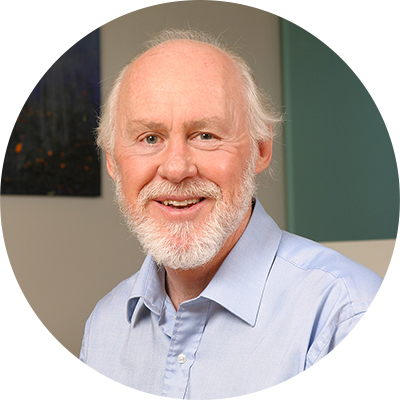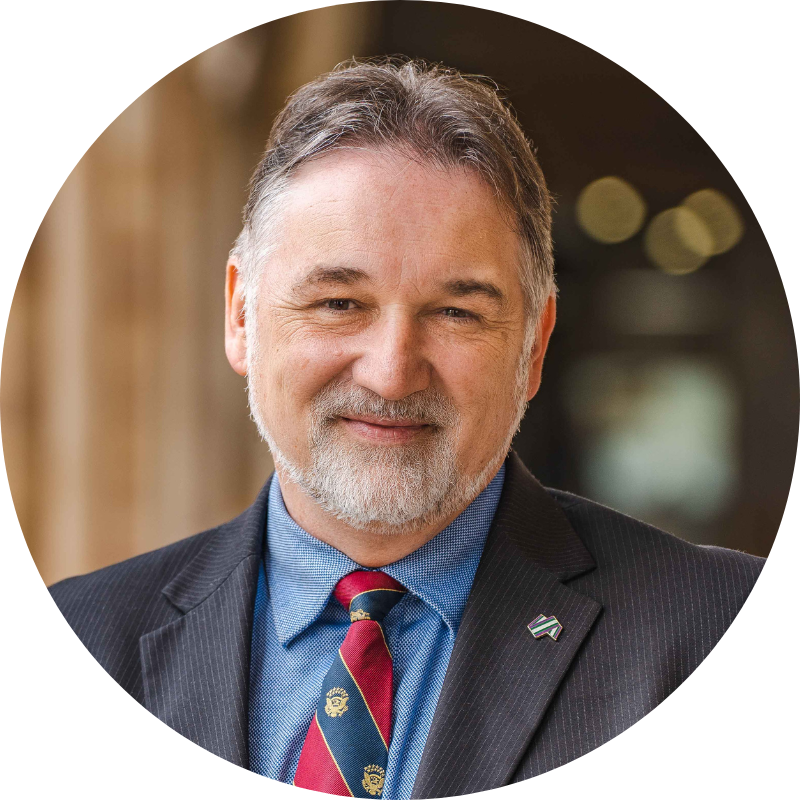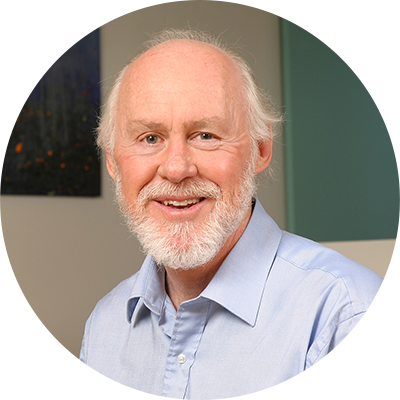Daily habits of successful CEOs:
7 practices adopted by effective leaders
What does it take to lead an organisation? Aside from the obvious qualities — discipline, creativity and confidence, to name a few — many notable CEOs have adopted key daily habits that have helped them rise to the top.
Apple CEO Tim Cook is an early bird, waking before 4am every day to respond to emails, followed by a morning workout at the gym. Microsoft CEO Satya Nadella practises gratitude and actively disconnects from technology to spend quality time with his family. Bumble CEO Whitney Wolfe Herd uses a strategy called "the question of nine" to prioritise what really matters and stay focused.
Whether you're already a CEO or aspire to reach the C-suite, read on for the key attributes of a successful CEO and 7 CEO-and researcher-endorsed daily habits you can implement now.

Terry Fitzsimmons
The key attributes of a successful CEO
According to The University of Queensland (UQ) Business School management researchers and UQ MBA lecturers Associate Professor Terry Fitzsimmons and Professor Victor Callan AM, successful CEOs share several common attributes.
“In our research into the attributes of successful CEOs, we conducted interviews with 120 individuals – 30 board chairpersons, 30 executive recruiters specialising in CEO appointments, and 60 current CEOs in large Australian corporations,” Terry says.
“Across these different groups, there was considerable similarity in how they defined the attributes of a successful CEO."
These key attributes are:
- Leadership — Synthesising and contextualising their experiences to bring all key stakeholders along with their vision for the organisation.
- Strategy — Conveying a credible strategic vision and direction for the firm to the board, shareholders and employees.
- Integrity — Holding a set of ethical values strongly aligned with those of the firm and the broader community.
- Self-efficacy — Showing confidence in their judgements and strong resilience in the face of setbacks.
- Stewardship — Demonstrating a deep practical understanding of the full breadth of organisational processes, including moving from being a specialist to a generalist.
- Cognitive skills — Having high intellectual horsepower and the ability to process large amounts of often conflicting information to make balanced decisions.
- Visibility — Maintaining personal credibility in the eyes of key stakeholders, including an ability to access critical networks of people.
7 daily habits of successful CEOs
So, now you're familiar with the shared attributes of successful CEOs. What can you do on a daily basis to ensure you develop these attributes in your own career?
Here are 7 key daily habits and practices to get you started, shared by Terry, Victor, and CEOs Zoe Black and Christofer Catania.
UQ MBA alum Zoe is the co-founder and CEO of Happy Paws Happy Hearts, a not-for-profit organisation that gives vulnerable people the opportunity to learn new skills, give back, and support rescue animals waiting for adoption.
Christofer — another UQ MBA alum — is the CEO of MEC Mining, a global technical consulting firm specialising in mining services capabilities across the project life cycle.
Although their passions and industries are poles apart, when it comes to their success as leaders, Zoe and Christofer have several daily habits and practices in common.
#1 Defer to your leadership team's expertise
Zoe says relinquishing total control is vital to effective leadership.

CEO Zoe Black
“Successful CEOs know they don’t need to have all the answers,” Zoe says.
“They leave their ego at the door, ask great questions, and facilitate healthy debate within their team so everyone can weigh in about how to push the organisation forward.
“It’s all about creating a culture of respect for the different talents within your organisation.”
Christofer agrees, noting the value in taking a step back.
“Anyone who has progressed from a technical or operations background to the C-suite knows the hardest thing to do is break away from your specialisation,” Christofer says.
“But it’s important to step away, take the balcony view and allow your team to operate with authority.
“That was a big challenge for me at the beginning: understanding how to elevate my perspective as CEO while not leaving my team feeling isolated.”
#2 Communicate regularly and mindfully

For Christofer, developing personal relationships with team members is critical.
“Every single person in the organisation is part of the bread and butter of what makes the business work,” he says.
“Making each person feel heard and seen is crucial, especially in a disconnected world where more people work from home. It’s important not to lose that personal touch and sense of trust.”
Zoe also advocates for regular, thoughtful dialogue between CEOs and their teams.
“We do quarterly resets where we set the scene and remind ourselves of our primary goal,” she says.
“Our team has established fundamentals of how we want to communicate with one another in those sessions. One of our core principles is being mindful of how we speak to each other.
“We don’t make demands; we say things like ‘I need more context or clarity on this issue’. Because as soon as someone says, ‘you need to do it this way’, the defences come up, and it doesn’t lead to a productive outcome.”
#3 Take breaks to manage burnout

As a CEO of a thriving not-for-profit organisation, a member of multiple boards and UQ’s current Social Entrepreneur in Residence, Zoe is acutely aware of the potential for burnout.
“A bad habit people fall into is holding off on taking breaks, working through their stress, and then taking a holiday thinking it will resolve that feeling of burnout,” she says.
“However, the literature says you should take a breather every day to remind your body that it’s coping.
“I try to fit in half an hour of walking or exercise at home, running around with the kids, or whatever I need to get into my body and feel more like myself.”
Terry and Victor’s research also highlighted the importance of health and wellbeing for successful CEOs.
“A key practice shared by many CEOs was taking any opportunity for exercise, including early morning walks or swims, or late-night walks or runs,” Victor says.
#4 Find time to reflect and plan
Christofer says the most effective leaders take time to reflect on their successes and failures and plan for what comes next.
“For me, it’s a daily process to take stock of what has happened, capture my learnings and reprioritise so I’m spending my time effectively and in the right places,” he says.
“When I think about what went well and what went poorly, I can walk in the next day with an action plan.”
#5 Don't allow the business to consume your identity
Having co-founded Happy Paws Happy Hearts as a passion project, Zoe is aware of how easy it is for your business to become enmeshed with your personal identity.
“Something I discuss with other founders who are also leading their businesses is not to let it own you,” she says.
“You must make the distinction if you want your business to live well beyond you. If your identity becomes too wrapped up in it, you might stay in the role longer than you should or make the wrong decisions due to confusing the two.”
Learn more: The top 7 leadership lessons you need now to beat the Great Resignation
#6 Remain open to lifelong learning
Terry says another common practice among successful CEOs is remaining open to learning all your life.
“Highly effective leaders search out opportunities for continuous learning to build a breadth and depth of industry experience,” he says.
“In many cases, their continuous learning is supplemented by extensive reading, being with people who think differently from them and completing postgraduate qualifications such as an MBA.
“Being extremely busy people and in line with many other aspects of their role, CEOs multitask. They often couple exercise with listening to business podcasts or making the best use of commuting time through audiobooks.
“Likewise, TED talks are also extremely popular for understanding and inspiring alternative ways of thinking.”
#7 Build strong networks
Effective CEOs usually make strong connections with people in their social, organisational and industry circles.
“We found that successful CEOs tend to build a supportive social network of people that includes their partners, friends, team members and other CEOs,” Victor says.
“They also actively participate in roles outside their business, in industry body leadership or not-for-profit boards, and present at industry conferences.
“This practice is equally important for aspiring leaders. Many people who become CEOs are usually very well known to the company board or the key advisors to the company board to which they are appointed.”
Platforms like LinkedIn are a good place to start to help look for and navigate networking opportunities on a daily or more regular basis.
No two leaders are the same, but by knowing more about the attributes of successful CEOs and implementing these 7 key habits in your own career, you can pave your way with confidence
Develop the daily habits you need to succeed with a UQ MBA
Associate Professor Terry Fitzsimmons

Associate Professor Terry Fitzsimmons is an Associate Professor in Leadership with The University of Queensland Business School and the UQ MBA program. He is the Director of the AIBE Centre for Gender Equality in the Workplace and Managing Director of the Australian Gender Equality Council (AGEC). He is also part of the Practice and Process Studies Research Hub.
Professor Victor Callan AM

Professor Victor Callan AM is a Professor of Management and Leadership with The University of Queensland Business School and the UQ MBA program. Victor has been elected as a Fellow of the Academy of Social Sciences in Australia, the Queensland Academy of Arts and Sciences, and the Australian Institute of Company Directors. He is also part of UQ Business School's Future of Health and Service Innovation Alliance research hubs.

